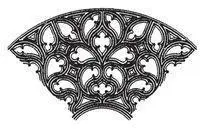Ildefonso Falcones - Cathedral of the Sea
Здесь есть возможность читать онлайн «Ildefonso Falcones - Cathedral of the Sea» весь текст электронной книги совершенно бесплатно (целиком полную версию без сокращений). В некоторых случаях можно слушать аудио, скачать через торрент в формате fb2 и присутствует краткое содержание. Жанр: Старинная литература, на английском языке. Описание произведения, (предисловие) а так же отзывы посетителей доступны на портале библиотеки ЛибКат.
- Название:Cathedral of the Sea
- Автор:
- Жанр:
- Год:неизвестен
- ISBN:нет данных
- Рейтинг книги:4 / 5. Голосов: 1
-
Избранное:Добавить в избранное
- Отзывы:
-
Ваша оценка:
- 80
- 1
- 2
- 3
- 4
- 5
Cathedral of the Sea: краткое содержание, описание и аннотация
Предлагаем к чтению аннотацию, описание, краткое содержание или предисловие (зависит от того, что написал сам автор книги «Cathedral of the Sea»). Если вы не нашли необходимую информацию о книге — напишите в комментариях, мы постараемся отыскать её.
Cathedral of the Sea — читать онлайн бесплатно полную книгу (весь текст) целиком
Ниже представлен текст книги, разбитый по страницам. Система сохранения места последней прочитанной страницы, позволяет с удобством читать онлайн бесплатно книгу «Cathedral of the Sea», без необходимости каждый раз заново искать на чём Вы остановились. Поставьте закладку, и сможете в любой момент перейти на страницу, на которой закончили чтение.
Интервал:
Закладка:
Grau heard of his brother-in-law’s decision from Jaume. It was the last thing he needed: the two Estanyols, both of them with the birthmark by their right eye, roaming the streets of Barcelona in search of work, talking about him with everyone who cared to listen ... and a lot of people would be interested, now that he had reached the summit. He felt his stomach churn, and his mouth was dry: Grau Puig, a Barcelona alderman, master of the guild of potters, member of the Council of a Hundred, giving shelter to runaway serfs. The nobles were already against him. The more Barcelona helped King Alfonso, the less the king depended on the feudal lords, and the fewer the rewards they could hope to wring from the monarch. Who had been the chief promoter of this support for the king? He had. And whose interests were harmed when serfs deserted the countryside? The landowning nobility. Grau shook his head and sighed. He cursed the day he had allowed this peasant to stay under his roof!
“Bring him here,” he told Jaume.
When his brother-in-law appeared, Grau said: “Jaume tells me that you want to leave us.”
Bernat nodded.
“What do you intend to do?”
“I’ll look for work to support my son.”
“You have no trade. Barcelona is full of people like you: peasants who could not earn a living from their lands. They never find work, and end up dying of hunger. Besides,” Grau added, “you aren’t even on the citizens’ roll, even though you have lived long enough in the city now.”
“What do you mean by the citizens’ roll?” asked Bernat.
“It’s the document that proves you have lived a year and a day in Barcelona. It means you are a free citizen, not someone’s vassal.”
“Where can I get mine?”
“The city aldermen authorize them.”
“I’ll ask for one.”
Grau looked hard at Bernat. He was dirty, dressed in a shabby tunic and wearing a pair of rope sandals. In his mind’s eye, Grau saw him in front of the city aldermen after having already told his story to dozens of clerks: Grau Puig’s brother-in-law and nephew, hidden in his workshop for years. The news would spread like wildfire. He himself had used similar gossip against his enemies in the past.
“Sit down,” he said. “When Jaume told me what you planned to do, I talked to your sister, Guiamona,” he lied to conceal his change of attitude, “and she begged me to take pity on you.”
“I don’t need pity,” Bernat objected, thinking of Arnau sitting on the pallet, staring into space. “I’ve been working hard for years in return for—”
“That was the offer,” Grau stopped him. “You accepted it. At that moment it suited you.”
“That may well be,” Bernat admitted. “But I did not sell myself as a slave, and it doesn’t interest me now.”
“Let’s leave pity out of it then. I don’t think you will find work anywhere in the city, still less if you can’t prove you are a free citizen. Without your papers, people will only take advantage of you. Have you any idea how many landless serfs there are here, with children to feed, forced to work for nothing just so that they can live for that precious year and a day in Barcelona? You cannot compete with them, and you will die of hunger before you are listed on the citizens’ roll: you ... or your son, and despite what has happened, we cannot allow little Arnau to suffer the same fate as our Guiamon. One death is enough. Your sister wouldn’t be able to bear it.” Bernat remained silent, waiting for his brother-in-law to continue. “If you are interested,” Grau said, stressing the word, “you can go on working here, on the same terms... and receiving the wage of an ordinary workman, less payment for bed and board for you and your son.”
“And Arnau?”
“What about him?”
“You promised to take him on as an apprentice.”
“And I will ... when he is old enough.”
“I want your written promise.”
“You shall have it,” Grau conceded.
“What about the citizens’ roll?”
Grau nodded. It would not be hard for him to get Bernat put on it ... discreetly.

7
“WE DECLARE BERNAT Estanyol and his son, Arnau, to be free citizens of Barcelona ...” At last! Bernat could not prevent a shudder as he heard these hesitant words from the man reading the documents. He had asked where he could find someone who knew how to read, and had met up with him in the shipyard, offering him a small bowl in return for the favor. With the sounds of shipbuilding in the background, the smell of tar, and the sea breeze caressing his face, Bernat listened as the man read out the second document: Grau agreed to take on Arnau as an apprentice when he was ten years old, and promised to teach him the potter’s trade. So his son was free, and one day could earn a living that would help him survive in the city.
Smiling broadly, Bernat handed over the bowl and walked back to the workshop. The fact that they had been listed on the citizens’ roll meant that Llorenç de Bellera had not denounced them to the authorities, and there was no warrant for his arrest. “Could the lad in the forge have survived?” he wondered. Even so ... “You can keep our lands, Lord de Bellera. We’ll keep our freedom,” Bernat muttered defiantly.
When they saw Bernat arrive wreathed in smiles, all Grau’s slaves and even Jaume interrupted their tasks. There were still traces of Habiba’s blood on the ground. Grau had ordered that they should not be cleaned up. Bernat’s face fell as he tried to avoid them.

“ARNAU,” HE WHISPERED to his son that night as they lay on the pallet they shared.
“What is it, Father?”
“We are free citizens of Barcelona.”
Arnau did not reply. Bernat felt for his son’s head and stroked it. He knew how little this meant to a boy who had been robbed of his happiness. Bernat listened to the slaves’ breathing and went on stroking his son’s curls, but a sudden doubt assailed him: would the boy agree to work for Grau one day? That night it took Bernat a long time to get to sleep.
At first light each day when the men began their tasks, Arnau would leave Grau’s workshop. And every morning, Bernat tried to talk to him and encourage him. You ought to make some friends, he tried to tell him once, but before he could do so, Arnau turned his back on him and walked wearily out into the street. “Enjoy your freedom, my son,” he wanted to tell him another time, but the boy just stood there looking at him, and when he opened his mouth to speak he noticed a tear rolling down Arnau’s cheek. Bernat knelt down. All he could do was hug the boy. Then he watched as he crossed the yard, dragging his feet. As he tried to avoid Habiba’s bloodstains, the sound of Grau’s whip echoed in Bernat’s mind. Bernat promised himself he would never back down when threatened by the whip in the future: once was enough.
Bernat ran after his son, who looked round when he heard him. When he reached him, his father began to scrape the beaten earth with his foot where the traces of the Moorish slave girl’s blood still showed. Arnau’s face brightened. Bernat scraped even more determinedly.
“What are you doing?” Jaume shouted from the far end of the yard.
Bernat froze. The sound of the whip echoed even more loudly in his mind.
“Father.”
Arnau used his rope sandal to push away the small pile of earth Bernat had raised.
“What are you doing, Bernat?” Jaume repeated.
Bernat said nothing. Several seconds went by. Jaume turned and saw all the slaves standing there, staring at him.
Читать дальшеИнтервал:
Закладка:
Похожие книги на «Cathedral of the Sea»
Представляем Вашему вниманию похожие книги на «Cathedral of the Sea» списком для выбора. Мы отобрали схожую по названию и смыслу литературу в надежде предоставить читателям больше вариантов отыскать новые, интересные, ещё непрочитанные произведения.
Обсуждение, отзывы о книге «Cathedral of the Sea» и просто собственные мнения читателей. Оставьте ваши комментарии, напишите, что Вы думаете о произведении, его смысле или главных героях. Укажите что конкретно понравилось, а что нет, и почему Вы так считаете.










